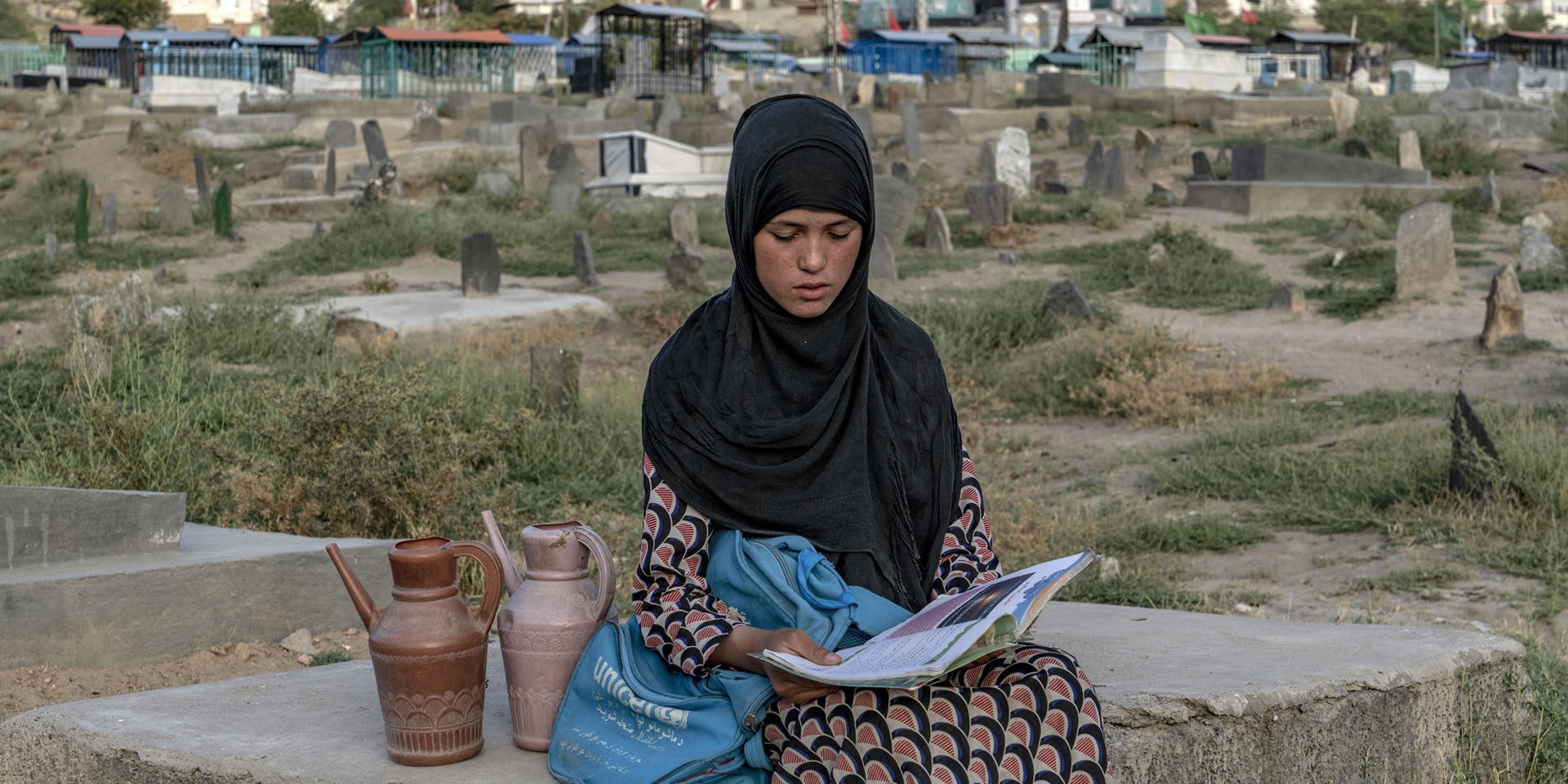Women in Afghanistan are no longer allowed to work for NGOs – the FDFA is concerned about the situation
Since the Taliban's sudden takeover of power in Afghanistan, the living conditions of millions of Afghans, especially women and girls, have worsened. An alarming example is the Taliban's recent decree banning women from attending universities and working for local and international NGOs. The FDFA is deeply concerned about these developments, not least because female NGO workers are often the only ones who are able to gain access to women and their families.
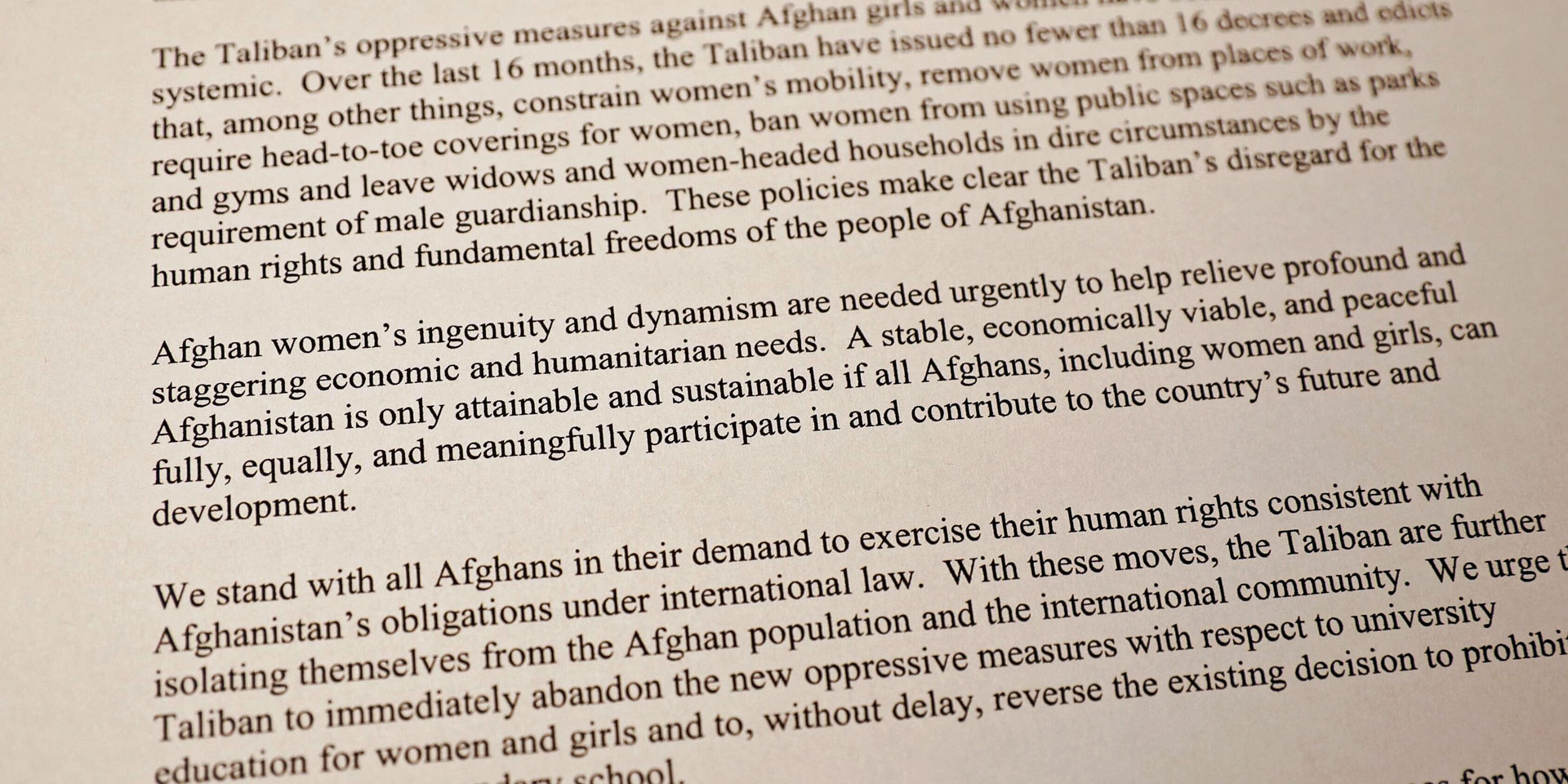
A joint statement signed by the G7 countries and several other states, including Switzerland, calls on Afghanistan to safeguard the human rights of all Afghans. © FDFA
27.04.2023 – UN Security Council condemns ban on women working for the United Nations in Afghanistan
Today, the UN Security Council unanimously adopted a resolution condemning the Taliban's decision to ban Afghan women from working for the UN in Afghanistan. These decisions have a devastating impact on a large part of the population and constitute a serious obstacle to a united, peaceful, prosperous and inclusive Afghanistan. This new work ban affects the ability of the UN Assistance Mission in Afghanistan (UNAMA) to fulfil its mandate, which was extended by the Security Council for 12 months on 16 March 2023.
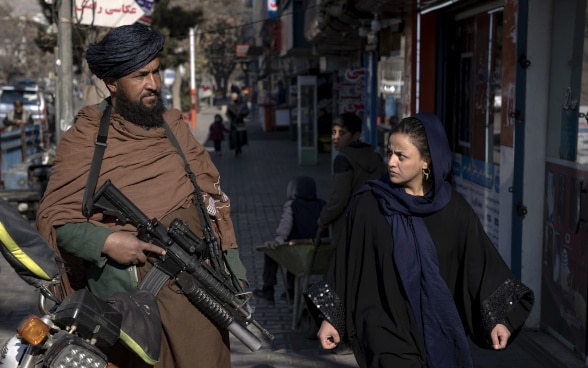
Switzerland voted in favour of the resolution in the Security Council. The resolution is a clear signal from the Security Council in this alarming situation and calls on the Taliban to lift their decrees. The ban is a violation of the UN Charter and women's rights, hinders humanitarian aid and the social and economic development of the country.
The entire Afghan society, especially women and girls as well as ethnic minorities, must be able to participate in public life without fear of reprisals. This is indispensable for the urgently needed development as well as for a lasting peace in Afghanistan.
Newsticker on Switzerland's membership in the UN Security Council
16.03.2023 – Switzerland highlights the central role of women in Afghan society in the UN Security Council
On 16 March, the UN Security Council unanimously renewed the mandate of the United Nations Assistance Mission in Afghanistan (UNAMA) for 12 months. As an elected member of the Council, Switzerland has voted in favour of renewing the mandate. UNAMA's activities are vital for the Afghan people, especially for women and girls.
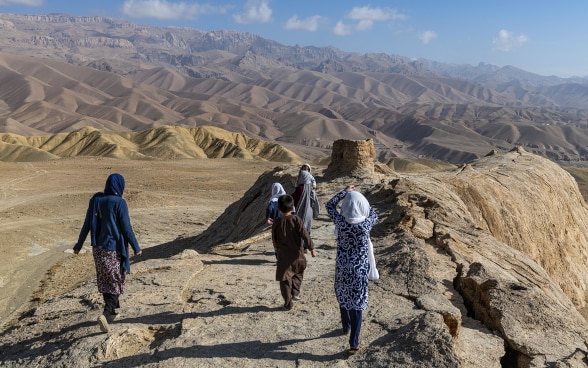
The whole of Afghan society should participate in public life without fear of reprisals. Women in Afghanistan play a central role in this regard. "Women and girls must have access to education, work, politics and social and economic life. We defend the right of women to participate in all decision-making processes. This is essential to respond to immediate humanitarian needs, but also for economic and social development, as well as for building sustainable peace. The work of Afghan women in many NGOs on the ground is instrumental in achieving these goals", said Swiss Ambassador to the UN Pascale Baeriswyl at the Security Council on 8 March 2023. To ensure that these efforts are successful, the Taliban must recognise the key role of women in Afghan society, economy and politics.
Newsticker on Switzerland's membership in the UN Security Council
29.12.2022 – Joint statement from Foreign Ministers on the Taliban’s ban on Afghan women working for NGOs
Switzerland calls on the Taliban to reverse their decision to ban Afghan women from working in NGOs. This threatens emergency aid and the most vulnerable in Afghanistan.
27.12.2022 – Interview with Ursula Läubli, Swiss Agency for Development and Cooperation (SDC)
Ursula Läubli, head of the Central and Northern Asia Section in the SDC's Asia – LAC Division explains the likely consequences of the Taliban's decree banning women in Afghanistan from working for local and international NGOs.
"At least half of the people who depend on aid in Afghanistan are women"
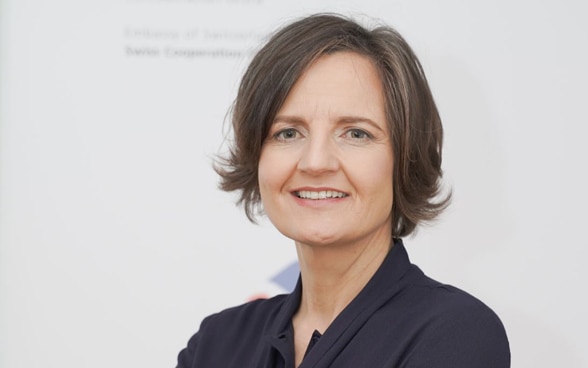
What is Switzerland currently doing to provide humanitarian aid to the people of Afghanistan?
Switzerland intends to maintain its engagement in what is now an extremely challenging environment and to continue to show solidarity with the people of Afghanistan, including in the country's poorest and most remote regions.
Switzerland works with Afghan and international partners who are present on the ground to implement its programme in Afghanistan. Its projects aim to safeguard the human rights of the Afghan population and help meet their basic needs. Food security, basic education and climate-resilient agriculture are further priorities.
What are the likely or foreseeable consequences of the decree banning women from working for NGOs in Afghanistan?
Swiss development cooperation has many years of experience in working with civil society and women's organisations in Afghanistan. Without female staff, aid can only reach the population in need to a limited extent, especially in the Afghan context. We are concerned about this because at least half of the people who depend on aid in Afghanistan are women. In many areas, only female personnel are able to gain access to women and their families. Moreover, women also have expertise and knowledge that brings added value for the more targeted and effective delivery of aid.
What do you make of the Taliban's latest decree?
Ensuring the well-being of the population has always been and remains the primary objective of Switzerland's support. Switzerland is committed to humanitarian principles. We are deeply concerned that this decision will mean that it will no longer be possible to fulfil these principles and that it will hamper the delivery of aid without conditions.
Humanitarian aid and people's livelihoods
After the Taliban's takeover of power last August, Switzerland adapted its development programme to the new reality. As a member of the international community, it took pragmatic steps to ensure that it could continue to deliver aid. Switzerland contributes around USD 30 million annually to alleviate critical humanitarian needs and secure livelihoods to the best of its ability. In 2022, it allocated just over half of these funds (55%) to UN agencies and the ICRC and the remainder (45%) to international NGOs (mainly the Agha Khan Foundation and Norwegian Refugee Council) and a local NGO.
To implement its programme in the country, Switzerland works with Afghan and international partners who are present on the ground. Its projects aim to safeguard the human rights of the Afghan population and help meet their basic needs. Food security, basic education and climate-resilient agriculture are further priorities.
In August 2021, Switzerland temporarily closed its cooperation office in Afghanistan and consequently no longer has Swiss or local staff working in the country. The Kabul cooperation office team has been downsized and is currently pursuing its work from Bern.
24.12.2022 – Women to be barred from working for NGOs in Afghanistan – the FDFA is concerned
On 24 December 2022, the Taliban issued a decree banning women from working for local and international NGOs until further notice. The FDFA is deeply concerned, as this is likely to have serious consequences for humanitarian aid in the country.
The FDFA is currently examining the possible impact on Switzerland's humanitarian engagement. Ambassador Heinrich Schellenberg, head of the FDFA's Asia and Pacific Division, responded on Twitter to the Taliban's announcement.
21.12.2022 – Switzerland issues statement calling for women to be allowed to attend universities in Afghanistan
The joint statement issued by the G7 and several other states reads as follows:
Statement from Foreign Ministers on Taliban Decision to Ban Women from Universities
The Foreign Ministers of Australia, Canada, France, Germany, Italy, Japan, the Netherlands, Norway, Spain, Switzerland, the United Kingdom, and the United States and the High Representative for the European Union strongly condemn the Taliban’s recent decisions to ban women from universities, to continue to bar girls from secondary schools, and to impose other harsh restrictions on the ability of women and girls in Afghanistan to exercise their human rights and fundamental freedoms.
The Taliban’s oppressive measures against Afghan girls and women have been relentless and systemic. Over the last 16 months, the Taliban have issued no fewer than 16 decrees and edicts that, among other things, constrain women’s mobility, remove women from places of work, require head-to-toe coverings for women, ban women from using public spaces such as parks and gyms and leave widows and women-headed households in dire circumstances by the requirement of male guardianship. These policies make clear the Taliban’s disregard for the human rights and fundamental freedoms of the people of Afghanistan.
Afghan women’s ingenuity and dynamism are needed urgently to help relieve profound and staggering economic and humanitarian needs. A stable, economically viable, and peaceful Afghanistan is only attainable and sustainable if all Afghans, including women and girls, can fully, equally, and meaningfully participate in and contribute to the country’s future and development.
We stand with all Afghans in their demand to exercise their human rights consistent with Afghanistan’s obligations under international law. With these moves, the Taliban are further isolating themselves from the Afghan population and the international community. We urge the Taliban to immediately abandon the new oppressive measures with respect to university education for women and girls and to, without delay, reverse the existing decision to prohibit girls’ access to secondary school.
Taliban policies designed to erase women from public life will have consequences for how our countries engage with the Taliban. Our foremost concern will continue to be the welfare, rights, and freedoms of the people of Afghanistan.
December 21, 2022
Immediately after the Taliban announced that women would be denied access to universities, the head of the Asia and Pacific Division (AAP) in the FDFA, Ambassador Heinrich Schellenberg, reacted via Twitter on 20 December 2022:

